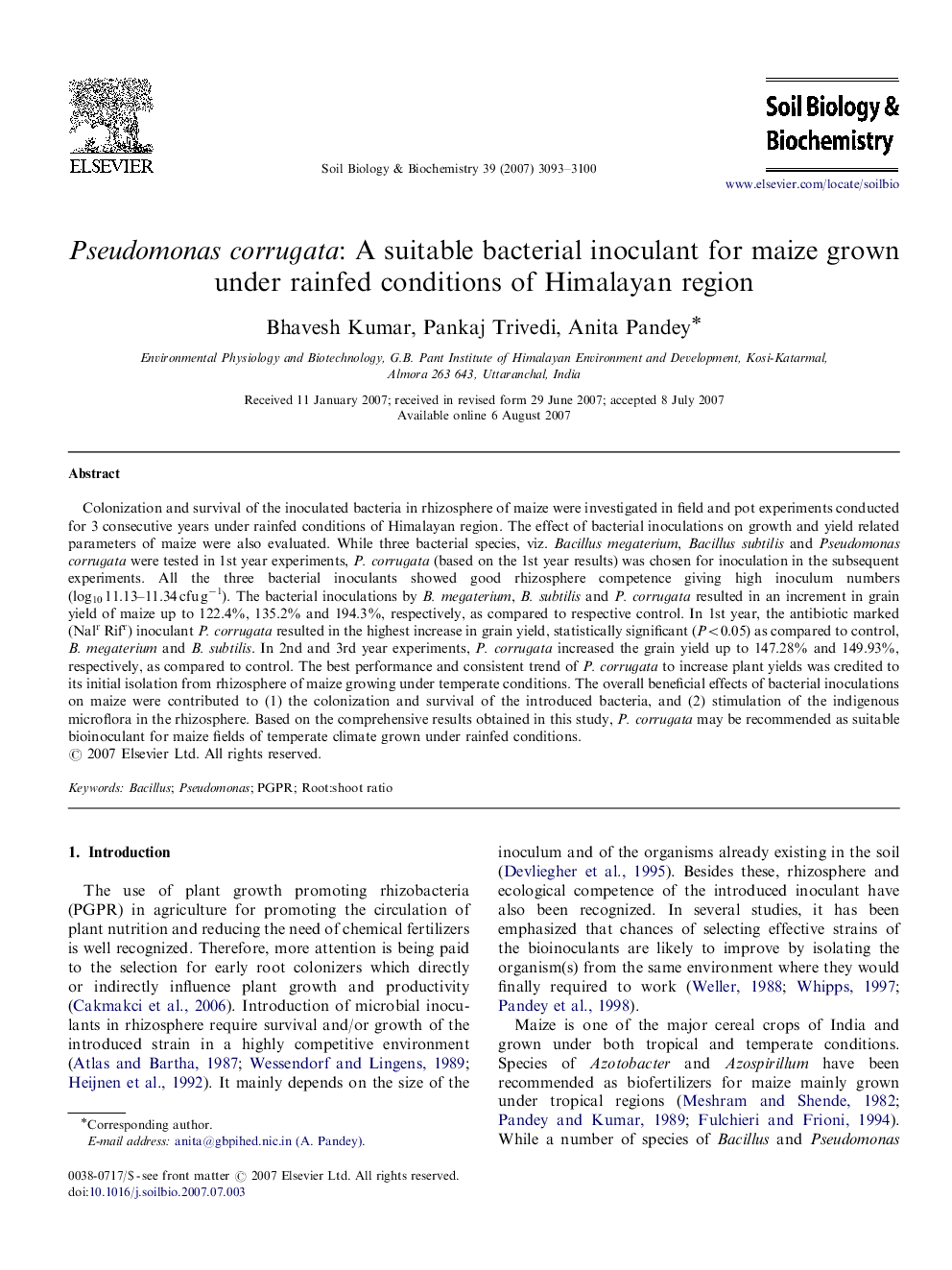| Article ID | Journal | Published Year | Pages | File Type |
|---|---|---|---|---|
| 2025549 | Soil Biology and Biochemistry | 2007 | 8 Pages |
Colonization and survival of the inoculated bacteria in rhizosphere of maize were investigated in field and pot experiments conducted for 3 consecutive years under rainfed conditions of Himalayan region. The effect of bacterial inoculations on growth and yield related parameters of maize were also evaluated. While three bacterial species, viz. Bacillus megaterium, Bacillus subtilis and Pseudomonas corrugata were tested in 1st year experiments, P. corrugata (based on the 1st year results) was chosen for inoculation in the subsequent experiments. All the three bacterial inoculants showed good rhizosphere competence giving high inoculum numbers (log10 11.13–11.34 cfu g−1). The bacterial inoculations by B. megaterium, B. subtilis and P. corrugata resulted in an increment in grain yield of maize up to 122.4%, 135.2% and 194.3%, respectively, as compared to respective control. In 1st year, the antibiotic marked (Nalr Rifr) inoculant P. corrugata resulted in the highest increase in grain yield, statistically significant (P<0.05) as compared to control, B. megaterium and B. subtilis. In 2nd and 3rd year experiments, P. corrugata increased the grain yield up to 147.28% and 149.93%, respectively, as compared to control. The best performance and consistent trend of P. corrugata to increase plant yields was credited to its initial isolation from rhizosphere of maize growing under temperate conditions. The overall beneficial effects of bacterial inoculations on maize were contributed to (1) the colonization and survival of the introduced bacteria, and (2) stimulation of the indigenous microflora in the rhizosphere. Based on the comprehensive results obtained in this study, P. corrugata may be recommended as suitable bioinoculant for maize fields of temperate climate grown under rainfed conditions.
